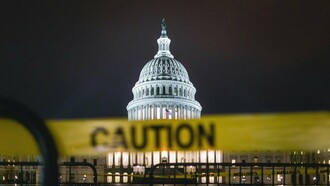The COVID-19 pandemic has had a severe impact on Africa, a continent that has been grappling with years of armed conflict (Raleigh, 2020). Mozambique is one of the countries in Africa that has been severely affected by the pandemic. According to Juliao and Cambrao (2021), the country is facing significant challenges related to poverty and inequality, which have been further exacerbated by the pandemic. The Mozambican government and NGOs are struggling to address these issues effectively due to the global spread of COVID-19.
The pandemic has not only worsened Mozambique's socio-economic situation but also contributed to a deteriorating security situation in the country. The Islamic State has carried out attacks on small villages before moving on to larger towns and cities, exposing the government's vulnerability during the pandemic (Saraiva, 2021). Over the past year, rebel groups in Mozambique have launched a series of attacks on police stations, cell towers, and other buildings, revealing the presence of external insurgents supporting non-state actors within Mozambique's borders (Savaira, 2021). These developments highlight the complex challenges facing Mozambique and the urgent need for effective solutions to address them.
The Al-Shabaab insurgent group has been primarily responsible for the ongoing armed conflicts in Mozambique, despite the challenges posed by COVID-19 (Lima, 2021). However, this is not a new phenomenon, as terrorist attacks have been prevalent in Mozambique since 2017. According to Nhamirre, Jossai, Cortez, Bande, and Fael (2020), Al-Shabaab was responsible for around 60% of civilian fatalities in Mozambique between October 2017 and October 2020.
The situation in Mozambique is increasingly complex and worrying. The terrorist organization Al-Shabaab displaced more than 13% of the country's population at the peak of the pandemic in September 2020. In addition, the group has been known to lure sympathizers with the promise of financial support and prosperity, according to reports from Garowe Online in 2020. A research study conducted by Estelle and Darden (2021) brought to light the tactics used by extremist groups to recruit and expand their organizations, emphasizing the need for governments to address the underlying socio-economic issues that make individuals vulnerable to these groups' appeals.
The emergence of the Islamic State as a serious threat to the Mozambican government has raised further concerns (Juliao and Cambrao, 2021). The group has stated that their targets are the government, not civilians, and has been using pictures and videos to recruit frustrated citizens who are experiencing economic difficulties and oppression from the African government, according to BBC News in 2021. Recently, the Islamic State issued a warning through its al-Naba online platform, cautioning against South Africa's military intervention in Cabo Delgado, which could lead to armed conflict within South Africa's borders (DefenceWeb in 2020). This statement serves as a reminder of the potential danger that the Islamic State presents to countries in the region, underscoring the importance of having effective counterterrorism strategies in place.
Given the complex nature of the conflict and the potential for it to spill over into neighboring countries, it is imperative that effective counterterrorism strategies are put in place. This includes a coordinated regional response, intelligence sharing, and targeted military action. It is also essential to address the underlying grievances that fuel the conflict, such as poverty, inequality, and marginalization.
Furthermore, Mozambican citizens are deeply concerned about the impact of the COVID-19 pandemic on their country. The World Bank (2021) has reported that Mozambique is already facing significant challenges such as poverty and unemployment, which have been exacerbated by the pandemic. This has led to many Mozambicans fearing that their government is gaining more control and violating their basic human rights, according to Amnesty International in 2021.
Hunger is a significant concern for Mozambicans, with many struggling to access food due to the economic downturn caused by the pandemic, as reported by the World Food Programme in 2021. The government's response to the crisis has been criticized for being inadequate, with many citizens feeling that they have been left to fend for themselves, according to Human Rights Watch in 2021.
These developments have led to fears that rebel movements may gain support, which could escalate the situation further. With poverty, unemployment, hunger, and government oppression already causing significant challenges for Mozambique, the emergence of the Islamic State only adds to the complexity of the situation and the need for immediate solutions.















